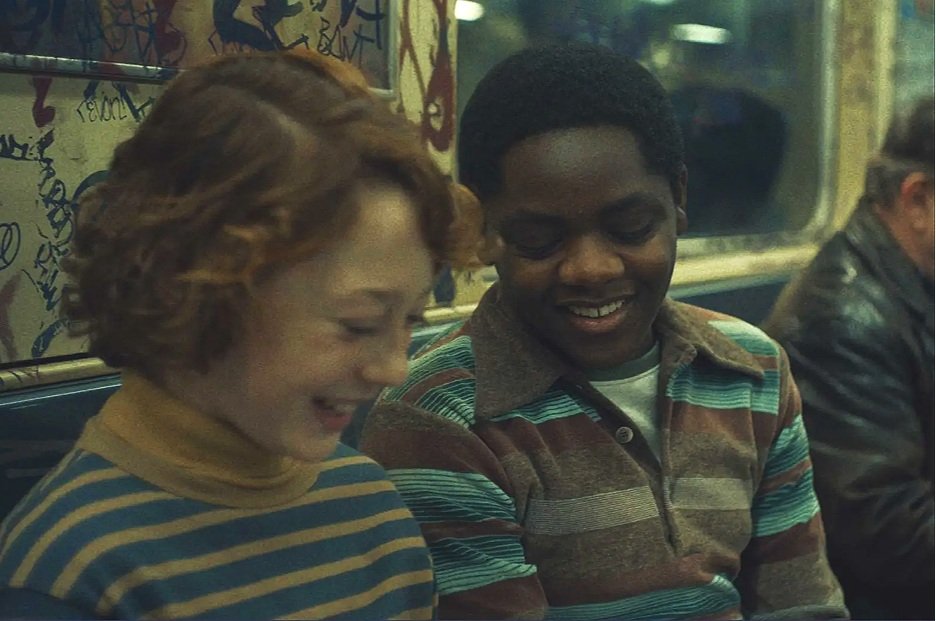Review: reckoning with the past in Armageddon Time
We're all just traumatized children grieving our pasts.
In Armageddon Time, writer-director James Gray lays bare his own memories with characteristic gentleness and steady care. This approach didn't work for me at first; for the first twenty-five minutes or so, I considered the whole affair dreary, uninteresting. It felt like he was squeezing as many key details to understanding characters' dynamics into as short a time frame as possible — conversation around the Graff family dinner table struck the same note as a vaudeville act, every performer getting a chance to ham up and do their shtick.
But then the sheer, brutal directness of these and subsequent events began to pierce through my skepticism. This isn't to say that the movie itself became more sophisticated or nuanced — rather, Gray applies scene after scene as if they were fine layers of dust, settling atop one another, until suddenly you feel immersed in it all.
You find yourself noticing the texture of a car's leather seats, or the way a living room's amber lamplight graces the downward curve of a character's lower lip. Gray's pain seeps into your skin, sinks into your bones and claws at your heart.
He does this without fanfare. Cinematographer Darius Khondji's compositions are usually unassuming, almost to the point of banality, and Marc Benacerraf's brown-toned art direction is no less drab. Yet it's the violence, the ferocity of hurt that erupts during scenes in these spaces that captivates you — that turns you into an unwilling yet deeply concerned witness.
Such hurtfulness, as displayed by parents towards their children, or authority figures towards the most vulnerable among us, can be frightening. It may not be something we're comfortable with seeing, even as it prompts us to glimpse lingering pain from our own pasts. And to step towards grappling with it.
A distinct note of praise must go to Banks Repeta, who plays eleven-year-old Paul with startling credibility. He is joined by Jaylin Webb, who is roiling yet graceful as Paul's persecuted friend, Johnny, and by the highly capable Anne Hathaway and Jeremy Strong as his well-intentioned yet severely misguided parents.
Plus there's Anthony Hopkins, who at this point in his career performs his scenes with a degree of seamlessness that borders on glibness. Yet of course, there is he is still, the great actor — as Paul's grandfather, recounting with light humility how his mother had to flee for her life from Nazi Germany, as if he were flicking a speck of dirt from his sleeve.
Young Paul endures it all with amusing flippancy and nerve, even as we watch the terrors in his life take their toll on his consciousness, on how he behaves. This is a fine, brave movie — not something I'm drawn to, but something I am grateful to have seen.
I'm reluctant to say that I'd rather not be presented with such unsettling material when I go to the movies. Or, if I am, then perhaps we don't need to see everything? I don't need to be positioned in the bathtub with a little boy as he's whipped by his father to understand or feel the horror of that situation.
Yes, it's visceral. But it's also a little violating. Or, in Gray's case, since it's his own memory, a bit too imposing.
